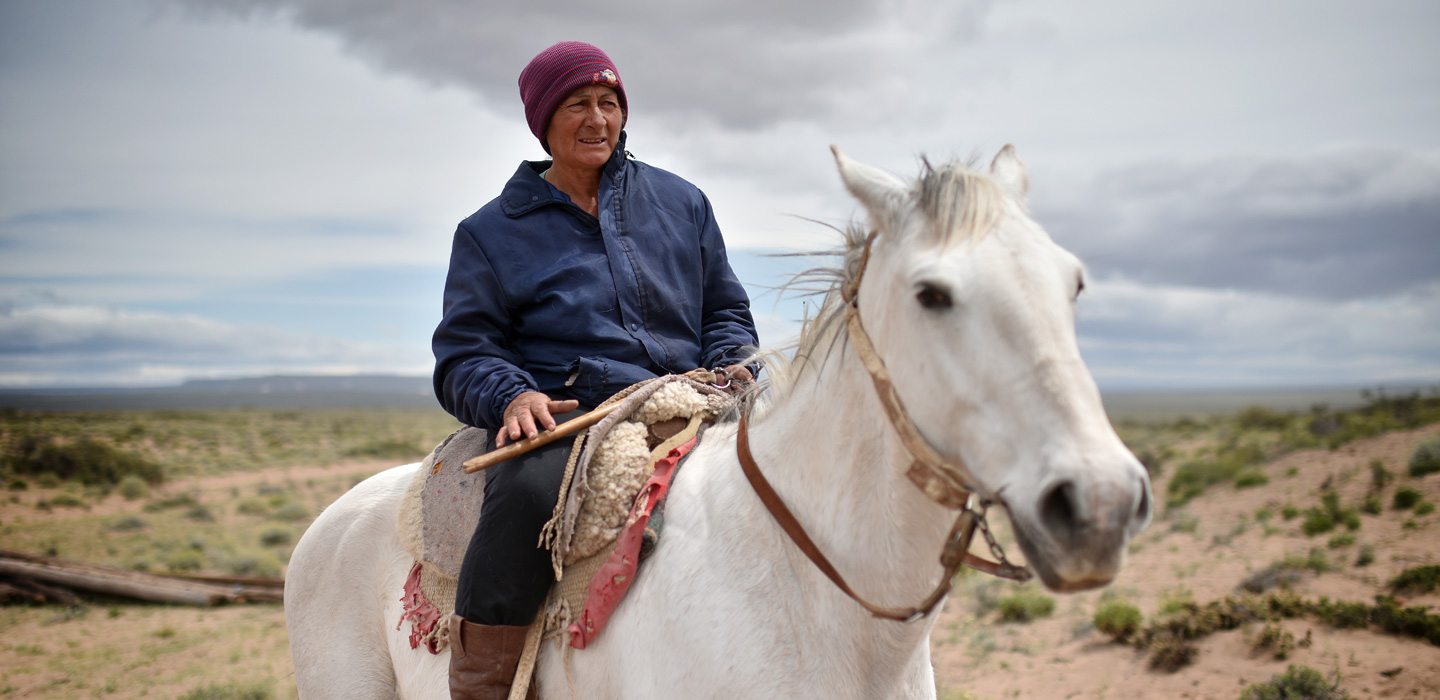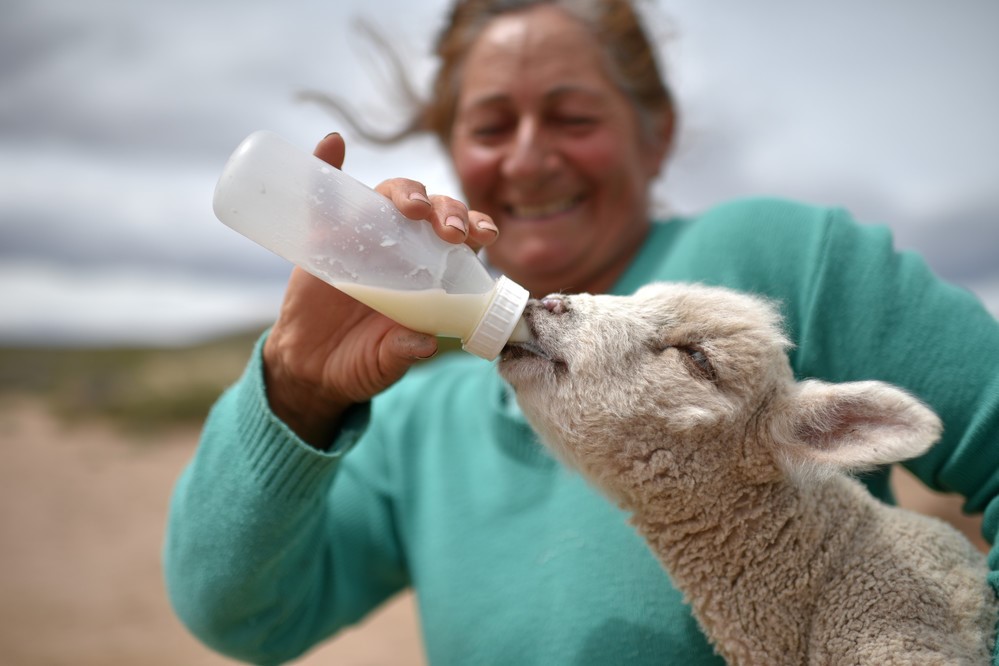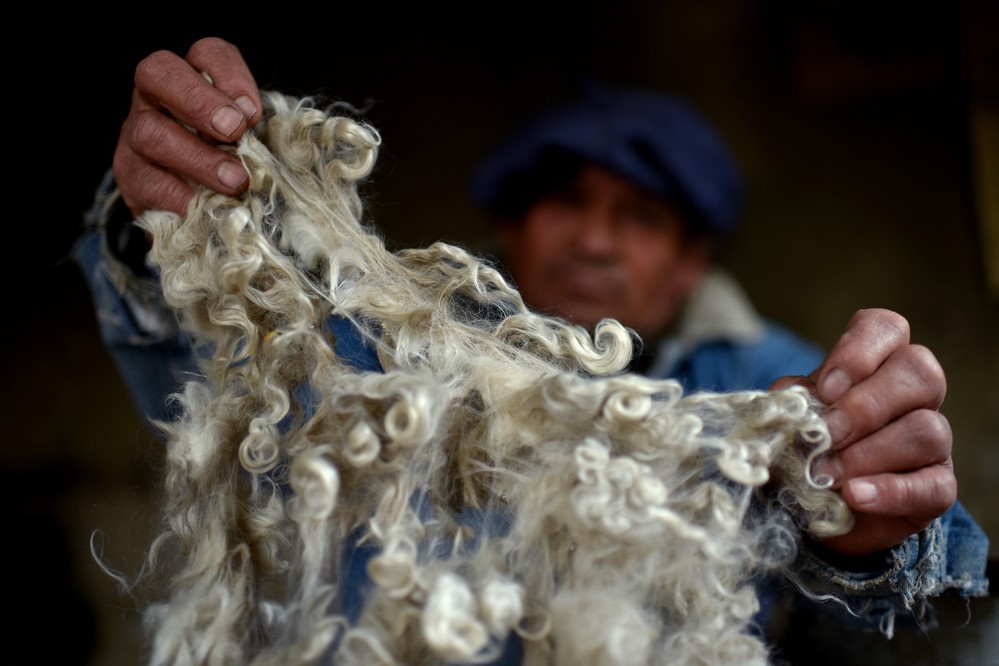Winds of change for Argentina’s herders
IFAD Asset Request Portlet
Asset Publisher
Winds of change for Argentina’s herders
Estimated reading time: 2 minutes
Fifty-seven-year-old Ana Cerda distinctly remembers her family’s flourishing herd of 1,300 goats. When she was a child, the herders of the Portezuelo Formation region in central Argentina lived in harmony with the seasons.
In early summer, they moved their herds of goats to mountain pastures, where water was plentiful. In autumn, they returned to their fields in the plains. “We used to have rain in autumn, snow in winter and, with the arrival of spring, everything changed. That way, the fields and animals were kept perfectly,” she says.
Ana stands out as one of the few women herders in her community, having decided to follow in her family’s footsteps and raise goats and small cattle on her parent's field. “I am the continuation of their work,” she says.
But conditions today are very different from those that existed in her parents’ time. With climate change, the ancient biannual migration practice, called transhumance, is becoming obsolete and is no longer enough to protect and preserve land and water resources. These days, a fierce, dry wind blows across the plains, with frequent gusts of 100 kilometres per hour – strong enough to uproot trees.
“There is more wind than ever,” Ana says. “On top of this, the rains are no longer like they used to be. Now all the water comes at once and the fields get destroyed. All this causes the animals to lose weight.” Today, Ana keeps only 200 animals on a piece of land that once supported more than 1,000 of them.
 |
| Ana’s family used to have more than 1,000 animals, today the number has fallen to 200. © IFAD/Factstory |
And life is getting harder. Although Argentina is a middle-income country, food insecurity is growing as three years of drought take their toll. What's more, an over-reliance on industrialized agriculture has contributed to the loss of precious biodiversity, while the country’s fragile economic state means annual inflation reached triple figures in early 2023.
Through the IFAD-financed PRODECCA programme, the Argentine Government is helping Ana adapt her business to this new reality and ensure she and 8,000 of the poorest families don’t get left behind.
In this region, Ana’s family and others are benefiting from community investments to improve water supply, cultivate native plants for forage and firewood, build sheds to shelter small cattle from the dry wind and establish drip irrigation systems.
 |
| PRODECCA helps farmers produce mohair and cashmere wool among other things. © IFAD/Factstory |
PRODECCA helps small-scale goat farmers in Argentina produce meat, dairy products and high-value products, like mohair and cashmere wool. It is one of three IFAD-supported rural development programmes in Argentina helping to reduce rural poverty, increase food security and nutrition, and build resilience for over 30,000 people to date.
Ana is hopeful that these positive changes will prompt the return of many young people who left the region to search for jobs.
For Ana and other rural producers, the old ways of their parents are long gone. But, with support from IFAD, they’re hoping to forge a new way forward in a changing world.
Publication date: 04 May 2023